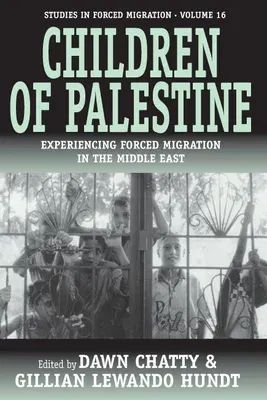Children of Palestine: Experiencing Forced Migration in the Middle EastPaperback, 1 March 2005

Qty
1
Turbo
Ships in 2 - 3 days
In Stock
Free Delivery
Cash on Delivery
15 Days
Free Returns
Secure Checkout

Part of Series
Forced Migration
Part of Series
Forced Migration, 16
Part of Series
Studies in Forced Migration
Print Length
256 pages
Language
English
Publisher
Berghahn Books
Date Published
1 Mar 2005
ISBN-10
1845451201
ISBN-13
9781845451202
Description
Product Details
Book Format:
Paperback
Country of Origin:
US
Date Published:
1 March 2005
Dimensions:
22.86 x
15.49 x
1.52 cm
ISBN-10:
1845451201
ISBN-13:
9781845451202
Language:
English
Location:
New York, NY
Pages:
256
Publisher:
Weight:
408.23 gm